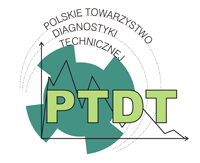Heart work analysis by means of recurrence-based methods
1
AGH University of Science and Technology, Faculty of Mechanical Engineering and Robotics,
Department of Robotics and Mechatronics,
Mickiewicz Alley 30, 30-059 Krakow, Poland
2
AGH University of Science and Technology, Faculty of Mechanical Engineering and Robotics,
Department of Process Control,
Mickiewicz Alley 30, 30-059 Krakow, Poland
Submission date: 2017-05-29
Final revision date: 2017-09-03
Acceptance date: 2017-09-04
Publication date: 2017-11-08
Corresponding author
Joanna Zofia Iwaniec
AGH University of Science and Technology, Faculty of Mechanical Engineering and Robotics, Department of Robotics and Mechatronics, Mickiewicz Alley 30, 30-059 Krakow, Poland, Mickiewicz Alley 30, 30-059 Krakow, Polska
AGH University of Science and Technology, Faculty of Mechanical Engineering and Robotics, Department of Robotics and Mechatronics, Mickiewicz Alley 30, 30-059 Krakow, Poland, Mickiewicz Alley 30, 30-059 Krakow, Polska
Diagnostyka 2017;18(4):89-96
KEYWORDS
TOPICS
ABSTRACT
Currently, for the purposes of recorded ECG signals interpretation, the classical methods involving analysis of geometrical properties of the recorded waveforms in time domain are used. Such an analysis consists in determining the values of parameters describing the heart rate variability. However, these indicators can not be treated as an infallible criterion for diagnosis and, moreover, the limits of increasing the accuracy of ECG analysis by increasing the accuracy of finding its characteristic points have already been reached. Therefore, in the paper, for the purposes of analysis of registered ECG signals and acoustical recordings of heart work, it is proposed to use the recurrence plots and RQA analysis methods that consist in searching for the recurrence properties of the registered signals. Application of the recurrence-based methods is natural due to the cyclic character of the heart work while providing patterns characteristic for different cardiac dysfunctions supported by objective, quantitative measures will contribute to early, credible and reliable classification of cardiovascular dysfunction.
We process personal data collected when visiting the website. The function of obtaining information about users and their behavior is carried out by voluntarily entered information in forms and saving cookies in end devices. Data, including cookies, are used to provide services, improve the user experience and to analyze the traffic in accordance with the Privacy policy. Data are also collected and processed by Google Analytics tool (more).
You can change cookies settings in your browser. Restricted use of cookies in the browser configuration may affect some functionalities of the website.
You can change cookies settings in your browser. Restricted use of cookies in the browser configuration may affect some functionalities of the website.


